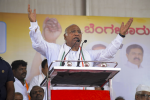
16-17 year olds can now get their COVID boosters. Why not younger children?
PTI, Feb 4, 2022, 10:16 AM IST

Adolescents aged 16-17 are now eligible to receive their Pfizer vaccine booster, following the recommendation earlier this week from the Australian Technical Advisory Group on Immunisation (ATAGI).
This move has been prompted by the rise of Omicron and reduced immunity after two vaccine doses.
It’s also the next step in the likely future expansion of booster doses to younger adolescents.
Here’s what you need to know before booking your 16-17-year-old for their booster, and why younger children are not yet eligible.
What’s been recommended? ATAGI’s recommendation to extend Pfizer booster doses to 16-17-year-olds this week follows regulatory approval from the Therapeutic Goods Administration (TGA) in late January.
This means an estimated 370,000 Australians aged 16-17 are eligible to receive their Pfizer booster vaccine from three months after their second dose.
Presently, the Pfizer vaccine is the only one registered as a booster for this age group.
Those under 16 when they received their second dose but have since turned 16 are also eligible.
Those 16-17-year-olds who are severely immunocompromised – for instance, with weakened immune systems due to cancer treatment – are recommended to have three primary doses, and three months later, have their booster (fourth) dose.
Why Omicron changes things The more transmissible Omicron variant can still infect people who have already been infected with SARS-CoV-2 (the virus that causes COVID), or who have had two vaccine doses.
For the vast majority of older adolescents, these so-called breakthrough infections are mild and very unlikely to lead to hospitalization.
Data from New South Wales during the Omicron period (November 26, 2021, to January 15, 2022) shows 71,786 PCR-confirmed cases in adolescents (aged 10-19 years) only 191 cases (under 1%) required hospitalization.
Then there’s the issue of waning immunity following the initial two doses.
Real-world data from adults in the United Kingdom shows four months after two Pfizer doses there is modest protection against Omicron infection (vaccine effectiveness 0-34%).
However, a Pfizer booster dose quickly improves protection against Omicron. Vaccine effectiveness increases to 54-76% within two to four weeks after a booster.
It is important to note that studies of the effectiveness of booster doses specifically in adolescents aged 16-17 against Omicron are not yet available. However, this is likely to be comparable to that for young adults.
The booster dose has several aims. It not only reduces the chances of getting infected in the first place, it reduces the severity of infection in an individual if they do. This means people are less likely to have to take time off school or work.
Adolescents are also a very mobile social group and there may be a potential benefit of a booster vaccine in reducing community transmission. If a booster vaccine reduces your chances of infection it follows it could then reduce community transmission. But more research is needed to confirm if this occurs for Omicron.
Safety data from the United States indicates Pfizer booster doses in adolescents have a similar profile to that seen after a Pfizer second dose.
Early data on booster doses from Australia’s active safety surveillance system also supports the safety of a Pfizer booster dose in adults. In over 600,000 surveys, the most commonly reported reactions include pain, redness and swelling at the injection site, tiredness, headache, and muscle aches.
We also know that both Pfizer (and Moderna) COVID-19 vaccines have rarely been associated with myocarditis, a treatable inflammation of the heart.
In studies in the US, the estimated myocarditis rate in young males aged 16-17 after the second Pfizer dose was 6.9 per 100,000 doses.
Australian data from the TGA show estimated rates of likely myocarditis in males aged 12-17 years of 10.9 per 100,000 doses after the second dose of Pfizer vaccine.
As the booster vaccine program rolls out to 16-17-year-olds, the TGA and state/territory health departments will closely monitor any adverse events.
Why can’t younger kids get their booster? The US now recommends booster doses for everyone aged 12 and older, from five months after the second dose.
It is likely Australia will also see a recommendation for booster doses in younger adolescents (12-15-year-olds) and potentially younger children (5-11-year-olds) in the future.
However, for now, our focus is on rolling out the two primary doses in 12-15-year-olds before considering any booster doses in this age group.
In the meantime, Australia will be closely monitoring data from the US and other countries before expanding the booster program to younger children. This will include safety data, with a focus on the risk of myocarditis looking at the best interval between primary and booster doses effectiveness data, with a focus on breakthrough infections and their severity.
Pfizer, or other vaccine manufacturers, would need to seek regulatory approval for boosters in younger age groups, and provide safety and effectiveness data.
Australia would also closely watch for the emergence of any new viral variants when considering the need to expand the booster program.
Udayavani is now on Telegram. Click here to join our channel and stay updated with the latest news.
Top News
Related Articles More

What role does genetics play in breast cancer? How can genetic testing help with early breast cancer diagnosis?

Father’s diet can affect anxiety in sons, metabolism in daughters: Study in mice finds

Low back pain, depression, headaches main causes of poor health: Study

Surgical options for Parkinson’s disease

Breast cancer to cause a million deaths a year by 2040: Lancet commission
MUST WATCH
Latest Additions

WATCH: 5 runaway military horses cause mayhem in London

FIR filed over BJP’s social media post allegedly promoting hatred and enmity: EC

Can’t control elections or pass directions on basis of suspicion: SC tells EVM critics

Amitabh Bachchan receives Lata Deenanath Mangeshkar Puraskar

Hubballi: Congress leader Randeep Surjewala visits Neha’s house, assures justice to family
























